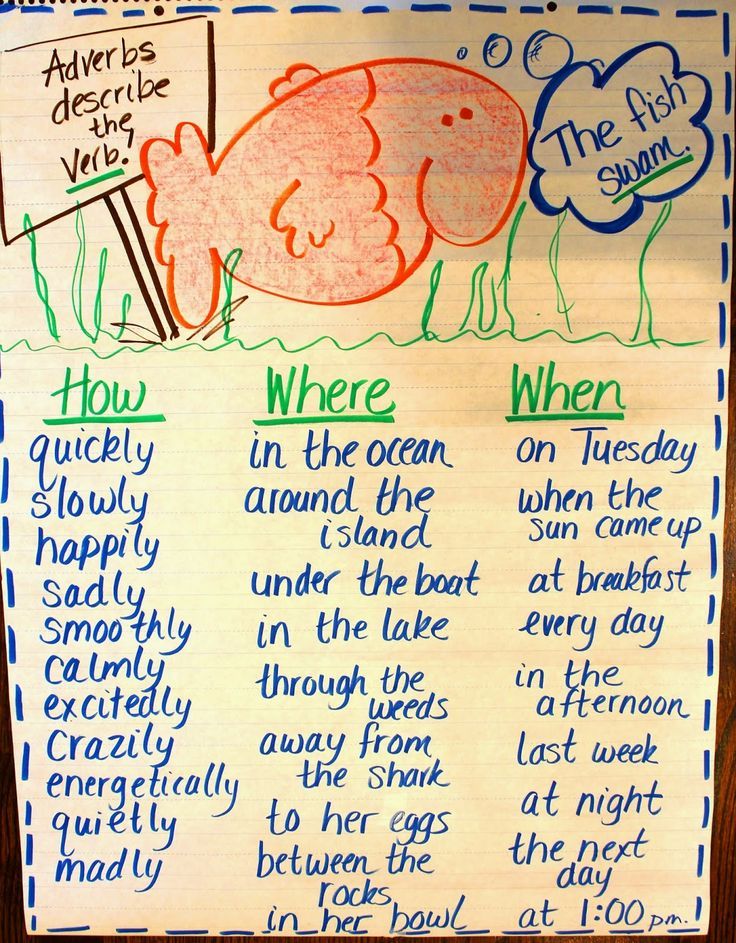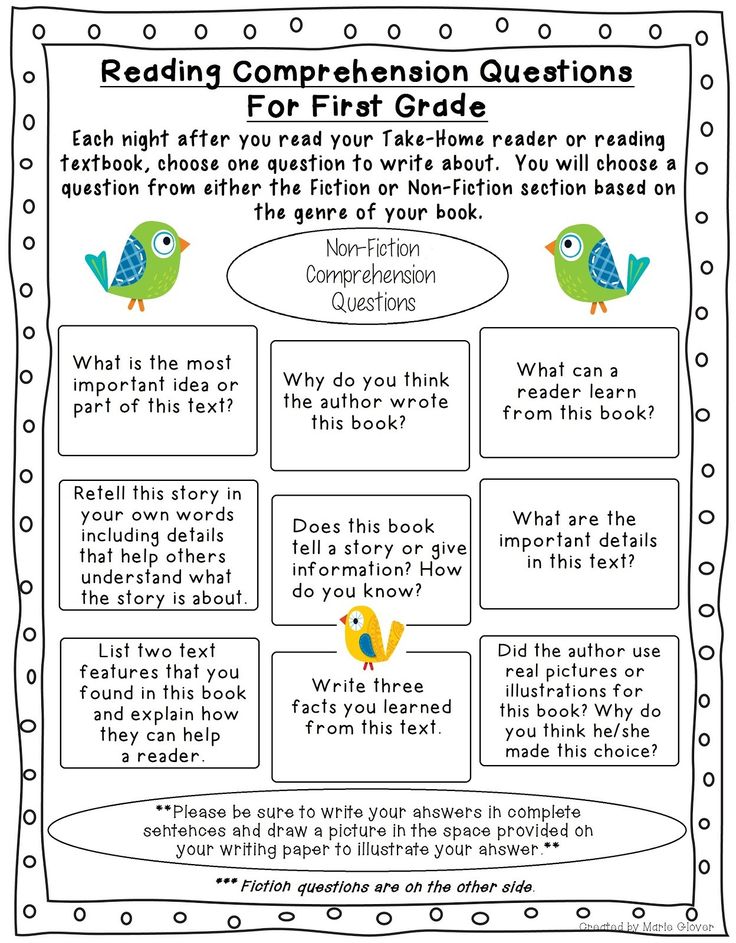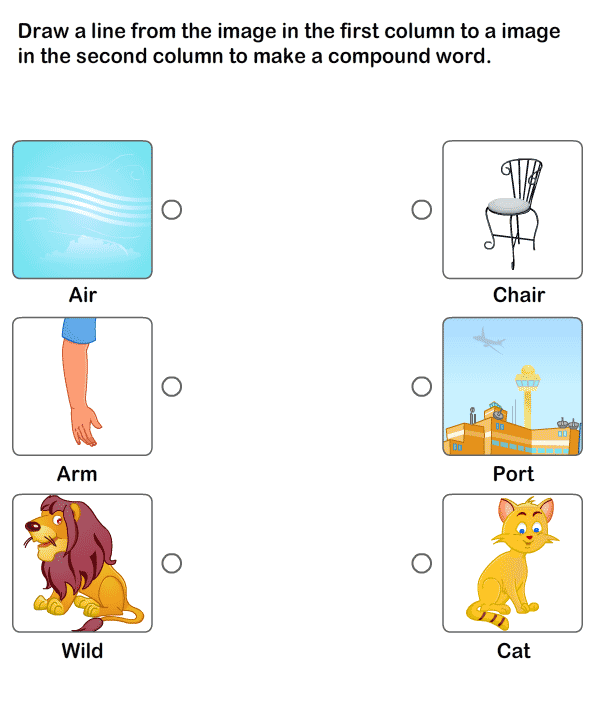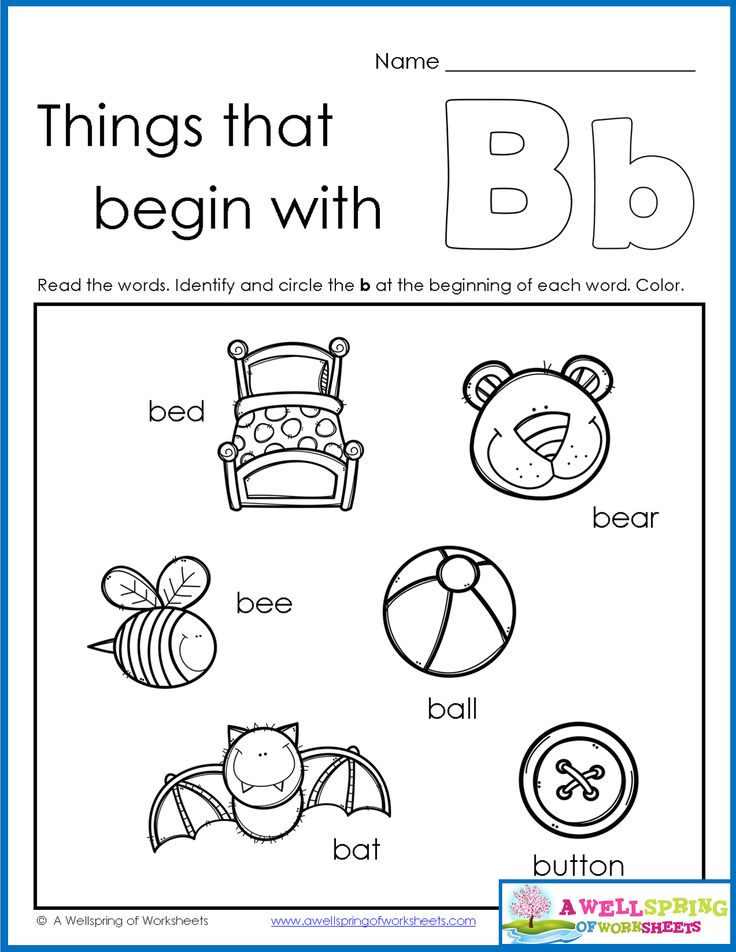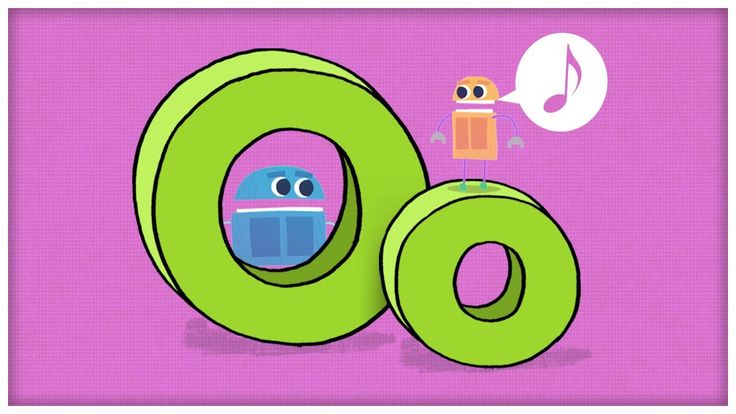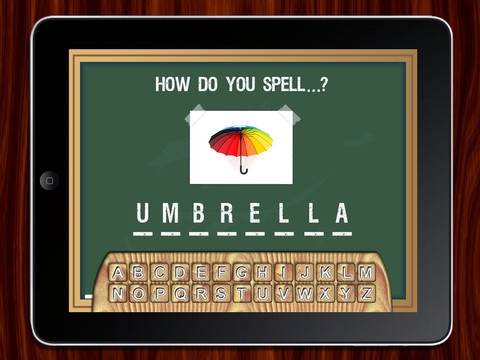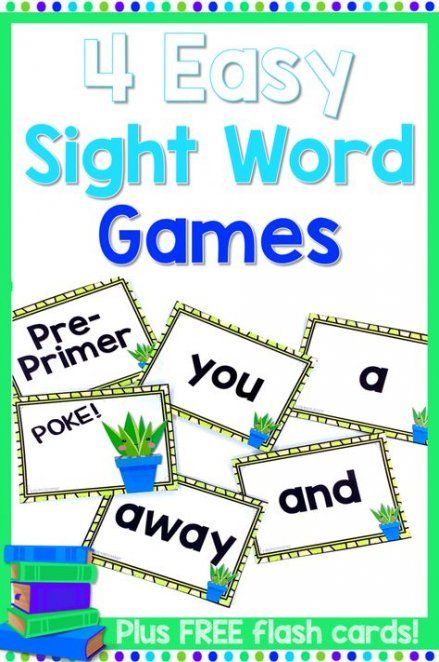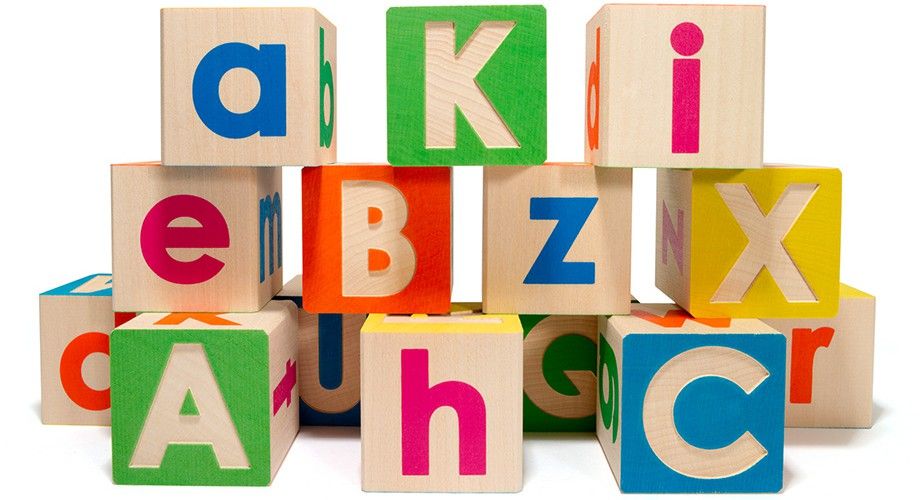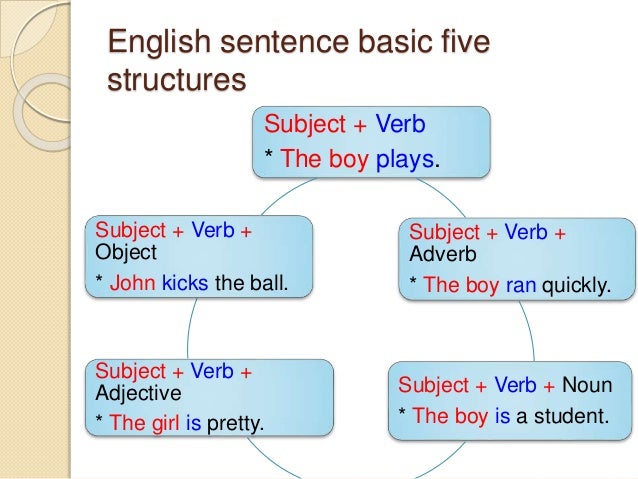Adverbs examples for kids
Adverbs for Kids
by Craig Shrives
This Page Includes...
- Video
- Printable & Sendable Test
What Are Adverbs? (for Kids)
Adverbs give us more information about verbs. In other words, they add to verbs.
Adverbs add to a verb by giving us information like how, when, where, or why the action is happening.
Let's look at these examples in more detail:
- Tony complained bitterly. (The adverb "bitterly" gives us information about the verb "complained" to tell us how. Note that the adverb ends "-ly." Lots of adverbs that tell us how end "-ly.")
- Jack bought a cactus yesterday. (The adverb "yesterday" gives us information about the verb "bought" to tell us when.
- Barry will wait here. (The adverb "here" gives us information about the verb "will wait" to tell us where.)
- Anne is training to win. (The adverb "to win" gives us information about the verb "is training" to tell us why. Note that an adverb can be more than one word.)
Examples of Adverbs
Here are some more examples of adverbs for how, when, where, and why. (Notice that an adverb can be more than one word.)
| how | when | where | why |
|---|---|---|---|
|
|
|
|
Most single-word adverbs that tell us how end "-ly," but here are three common "how" adverbs that do not end "-ly":
- fast, well, hard
More about Adverbs
As you learn to spot adverbs, you will soon notice that adverbs can also give us information about adjectives and other adverbs, not just verbs.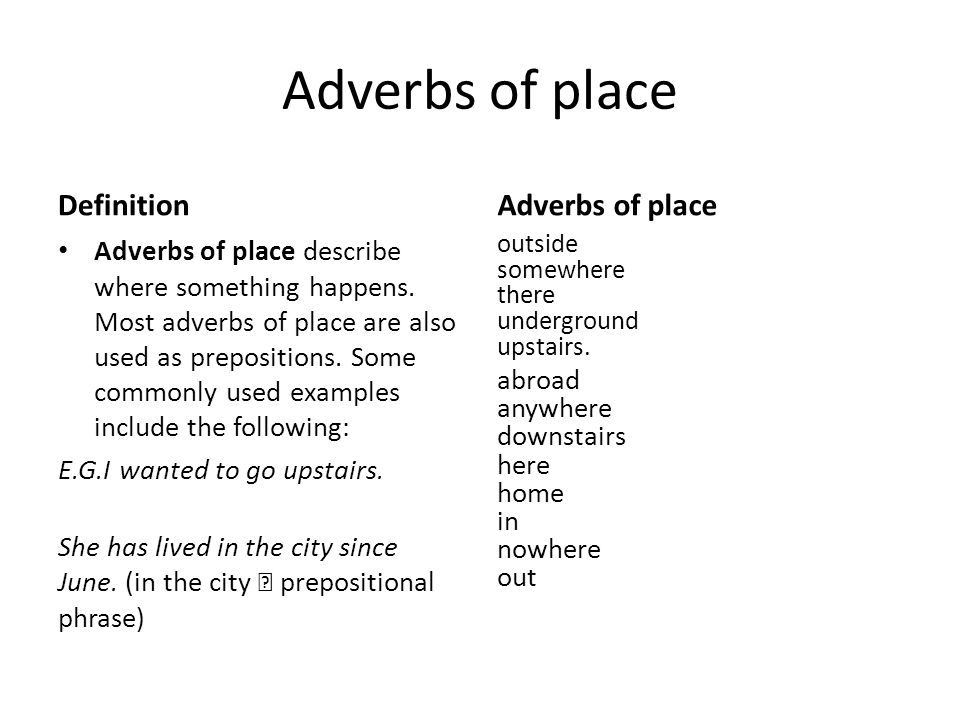 For example:
For example:
- John is an extremely good dancer.
- It is bitterly cold outside.
- Tina answered unbelievably quickly.
- The lioness is feeding her cubs exceptionally carefully.
Fronted Adverbials
Another interesting point about adverbs is that they can be placed at the start of a sentence. When used like this, they are called fronted adverbials. Let's compare some examples without and with fronted adverbials:
- The canary sang joyfully. ("Joyfully" is an adverb telling us how.)
- Joyfully, the canary sang. (This time, "joyfully" is at the front of the sentence. It is a fronted adverbial. Notice the comma after the fronted adverbial.)
Most fronted adverbials are multi-word adverbs:
- I went to the park yesterday morning.
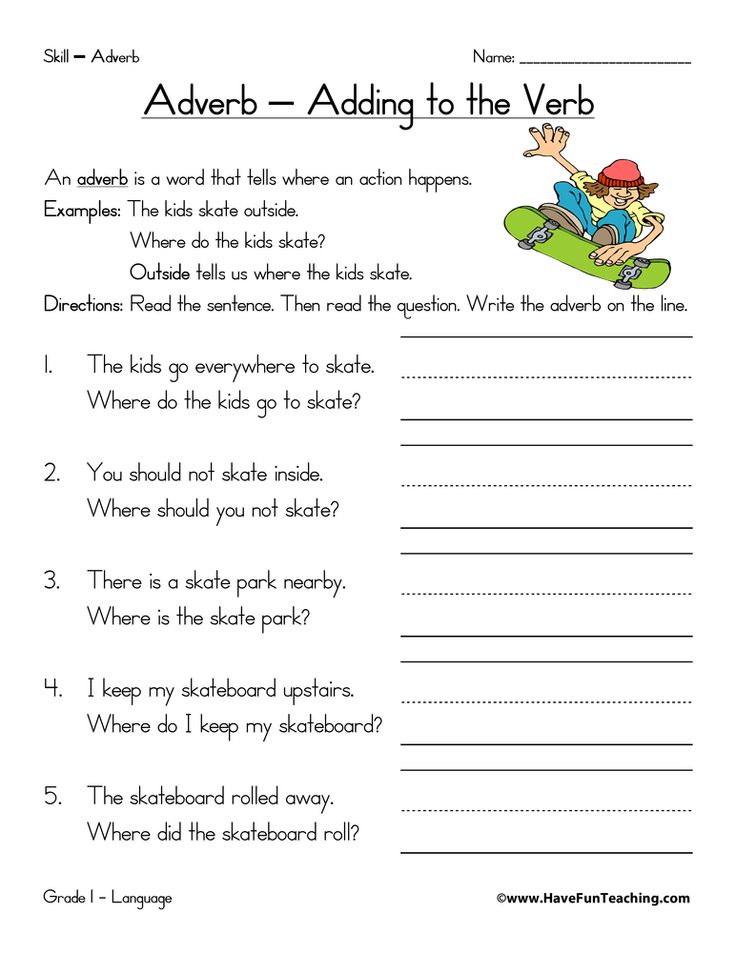 ("Yesterday morning" is an adverb telling us when.)
("Yesterday morning" is an adverb telling us when.)
- Yesterday morning, I went to the park. (This time, "yesterday morning" is at the front of the sentence. It is a fronted adverbial. Notice the comma.)
Here is another example:
- Crowds gathered on the tops of the nearby hills to watch the eclipse. ("On the top of the mountain" is an adverb telling us where.)
- On the tops of the nearby hills, crowds gathered to watch the eclipse. (This time, "on the tops of the nearby hills" is at the front of the sentence. It is a fronted adverbial. Again, notice the comma.)
Even More about Adverbs
The Real Names
- "how" adverbs = adverbs of manner
- "when" adverbs = adverbs of time
- "where" adverbs = adverbs of place
- "why" adverbs = adverbs of reason
Other Types of Adverbs
Adverbs can give us other information about verbs too, not just how, where, when, and why.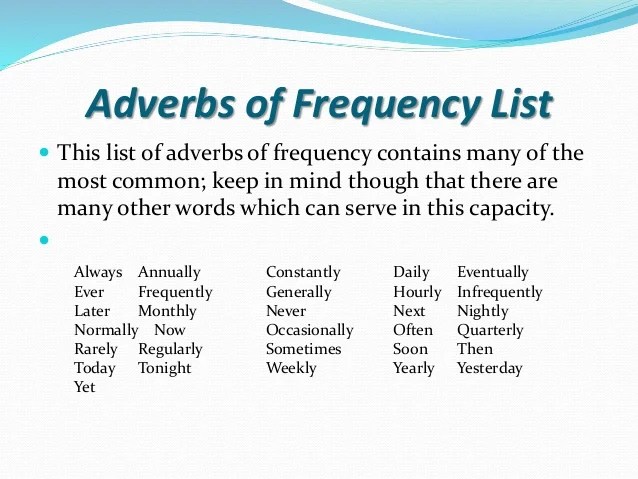 For example, adverbs can also give us information like comparison, condition, and concession.
For example, adverbs can also give us information like comparison, condition, and concession.
- Jack runs faster than you. ("Faster than" is an adverb of comparison. This is also called an adverb of degree.)
- If it rains, the game will end. ("If it rains" is an adverb of condition.)
- Even though it is cold, the flowers are flourishing. ("Even though it is cold" is an adverb of concession.)
Video Lesson
Here is a video lesson giving more information about adverbs:
Printable Test
Help Us Improve Grammar Monster
- Do you disagree with something on this page?
- Did you spot a typo?
Find Us Quicker!
- When using a search engine (e.g., Google, Bing), you will find Grammar Monster quicker if you add #gm to your search term.

Next lesson >
See Also
Adjectives for kidsConjunctions for kidsNouns for kidsPrepositions for kidsPronouns for kidsInterjections for kidsVerbs for kidsadverbs for adult learnersa list of 300 adverbs
Page URL
Technical Help
- Download the latest grammar-checker app.
Grammarly's app will help with:
(1) Avoiding spelling errors
(2) Correcting grammar errors
(3) Finding better words
(This free browser extension works with webmail, social media, and texting apps as well as online forms and Microsoft Office documents, like Word and Teams.)
Self Help
- Buy the grammar book that's right for you.
Hired Help
- Hire an online tutor from the British Council.
Games for Learning Adverbs
Here are some tests and games for learning about adverbs:
- Find-the-adverbs test
- Test on fronted adverbials
- Adverbs game (bubble-pop game)
- Adverbs game (whack-a-word)
- Adverbs game (fish game)
Next lesson >
ᐈ Adverbs 📖
What is an adverb?
️ Types of Adverbs
Adverbs of manner
Examples of adverbs of manner:
Adverbs of place
Examples of adverbs of place:
Adverbs of time
Examples of adverbs of time:
Adverbs of degree
Examples with adverbs of degree:
Adverbs of frequency
Examples with adverbs of frequency:
Adverbs and adjectives
Playlearn with Lingokids!
Every child has a favorite hobby! Whether it’s singing, playing with toys, running, or reading.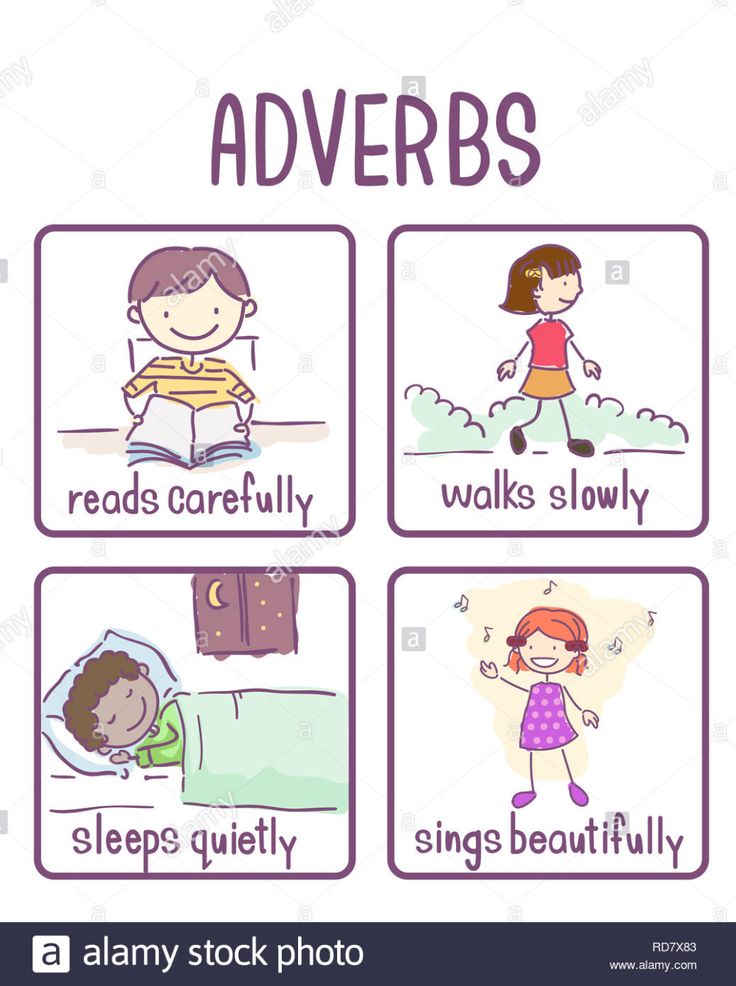 But, what do all of these activities have in common? Well, for once, action verbs are used to talk about them!
But, what do all of these activities have in common? Well, for once, action verbs are used to talk about them!
Words are tricky, they can change and adapt according to the speaker’s needs. In English, words are classified into different categories. These categories can be varied, and usually, divide words by their uses in this language. Some of these categories are: verbs, adjectives, nouns or pronouns
All of these have their own place in an English sentence. However, there’s one type of words that are also essential for the English language: the adverb.
What is an adverb?
Adverbs are words used to change, describe, or add more information about a verb in a sentence. An adverb can also modify an adjective or even other adverbs, with the purpose of making the meaning of the sentence clearer.
There is a common characteristic that makes it easy to identify an adverb in a sentence, usually, they look like adjectives that end in -ly. Words like “quickly”, “happily” or “shortly” are adverbs. However, this rule doesn’t apply to all of these words, so sometimes identifying them in a sentence is not as easy.
Another way of doing this is by looking at their placement in the sentence, which can help when in doubt. Most times, adverbs are located immediately before or after the word they’re modifying. If there are still doubts about which one is the adverb, then it’s advisable to look for the words that are adding information or describing other words in the sentence.
Depending on the type of adverb that’s being used, they can tell a person how an action occurs, or where does it happen. It can also describe when the action happens, or even the frequency of this action.
️ Types of Adverbs
Adverbs of manner
These are the words used to make descriptions of the manner or the way that something is done. This is excellent to bring more details in the description of an event.
Some of the most common adverbs of manners are:
Abruptly / Angrily / Badly / Carefully
Easily / Fast / Friendly / Gently
Happily / Hard / Heavily / Kindly
Loudly / Neatly / Nicely / Politely
Quickly / Quietly / Sadly / Secretly
Slowly / Softly / Suddenly / Well
Examples of adverbs of manner:
I gently brush my teeth every morning… like Lisa!
It was Cowy’s birthday, so her dad secretly bought her a present.
In the library, everybody has to speak quietly.
They like their new cat, it has a friendly attitude.
Lisa and her friends are living happily.
Billy couldn’t play.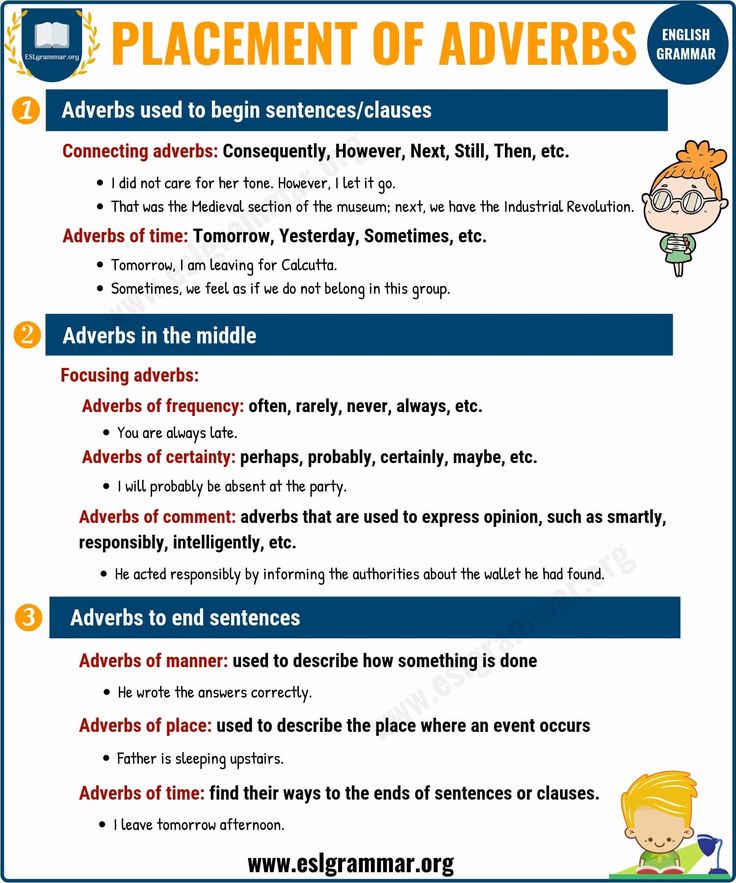 He was behaving angrily.
He was behaving angrily.
Baby Boy was reading carefully her new history book.
Adverbs of place
When a person needs to describe the place where an action or something related to the action occurred, they use an adverb of place. It usually expresses where something happens. These adverbs can refer to directions, distances, or relative position of an object.
Some of the most used adverbs of place are:
Above / Around / Backward/ Behind
Below / Between/ Down/ East
Everywhere/ Forward/ Here/ North
Far Away / There/ Nearby/ Outside
Miles Apart / South / Up / West
Examples of adverbs of place:
Elliot studies here in this school.
The museum has a music store nearby.
She headed west where the library is.
Billy lives behind the mall.
Cowy is running around the track.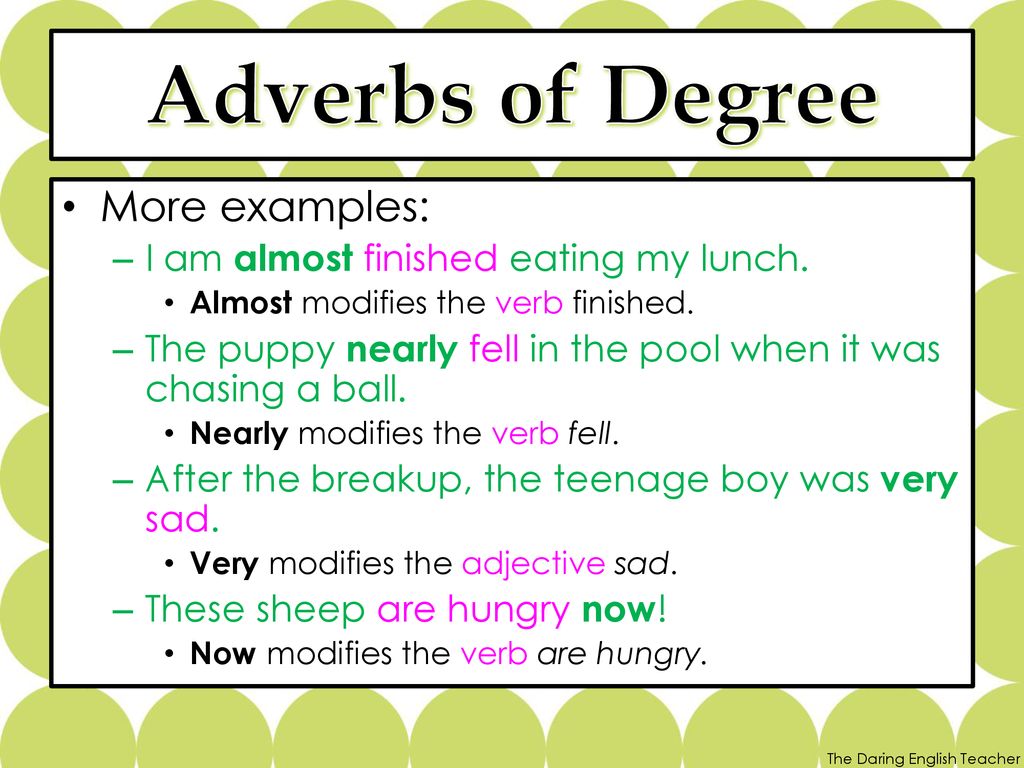
This is your book, I’ll put it here.
Baby Bot headed north to visit his mom.
Adverbs of time
As their name stated, the adverbs of time describe when things happen, for how long they happened, or even for how frequently an action happened. These adverbs are usually placed at the end of the sentence, but their position in the sentence can be switched if the person needs to emphasize something in particular.
The most common adverbs of time are:
Hourly / Daily / Nightly / Weekly
Monthly / Annually / Yearly / Before
Already / Now / Today / Tonight
Tomorrow / First / Next / Soon
Since / Yesterday / Yet / Finally
Previously / Late / Earlier / Later
Just / Recently / Eventually / Still
Examples of adverbs of time:
Elliot now runs in the morning.
Billy and Baby Bot will soon be traveling to the moon!.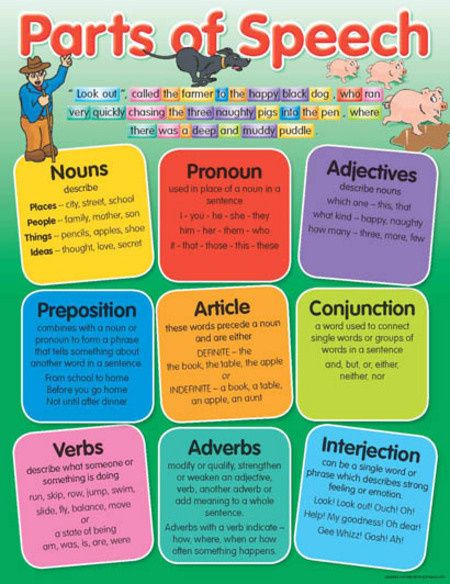
I recently bought a few notebooks for my classes.
Then, it was time to cut the cake.
I will go to the beach tomorrow.
Lisa is still waiting for Cowy to arrive.
Let’s call Billy tonight.
Adverbs of degree
These adverbs are perfect to describe the intensity or degree of something, it could be an adjective, an action, or even another adverb. There are many, and they are very different, but some of the most used adverbs of degree are:
These are some of the most used adverbs of degree:
Absolutely / Almost / Barely / Very
Deeply / Enough / Extremely / Full
Hardly / Least / Less / Practically
Most / Much / Positively / Little
Quite / Rather / Simply / Completely
So / Somewhat / Terribly / Too / Utterly
Examples with adverbs of degree:
Billy is quite helpful around the house!.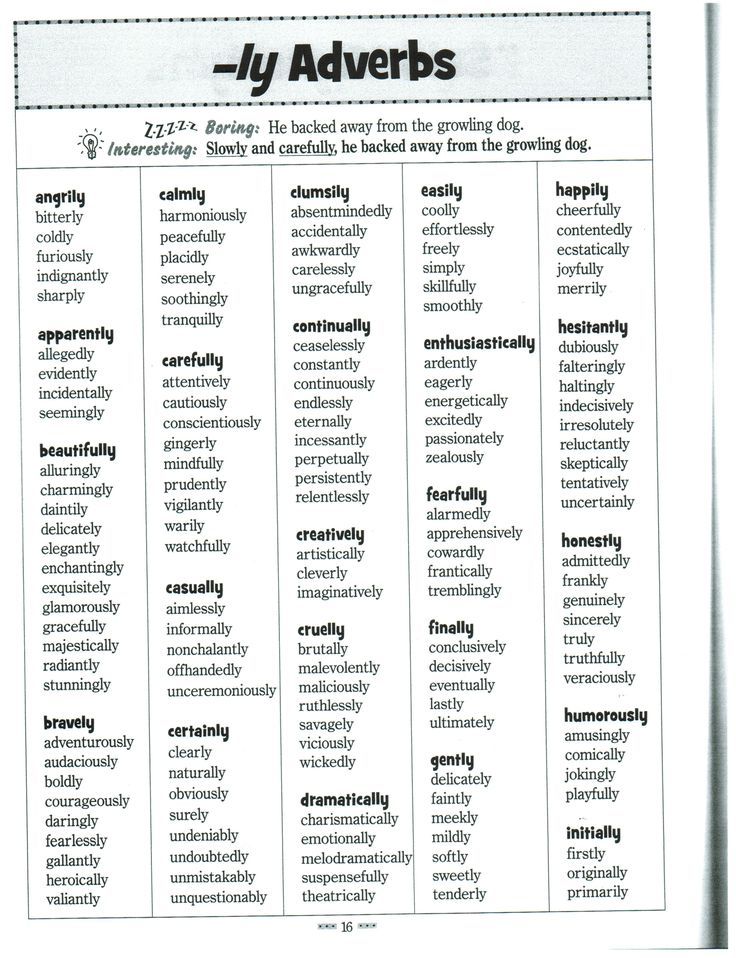
Lisa has practically not been able to study.
She is so intelligent!.
I am somewhat preoccupied with my maths exam.
Elliot is very friendly.
Lisa has most of her friends in this neighborhood.
Baby Bot is practically out of college.
Adverbs of frequency
The main use of the adverbs of frequency is to describe how often an action occurs, or how many times has happened, to change the meaning of the sentence. Usually, these adverbs can also be seen as adverbs of degree, however, the use is not the same.
These are the most used adverbs of frequency:
Infrequently / Daily / Eventually / Frequently
Generally / Always / Occasionally / Often
Hardly Ever / Normally / Usually / Never
Examples with adverbs of frequency:
Cowy is never angry, she’s very sweet!
Billy always goes to the market on Tuesday.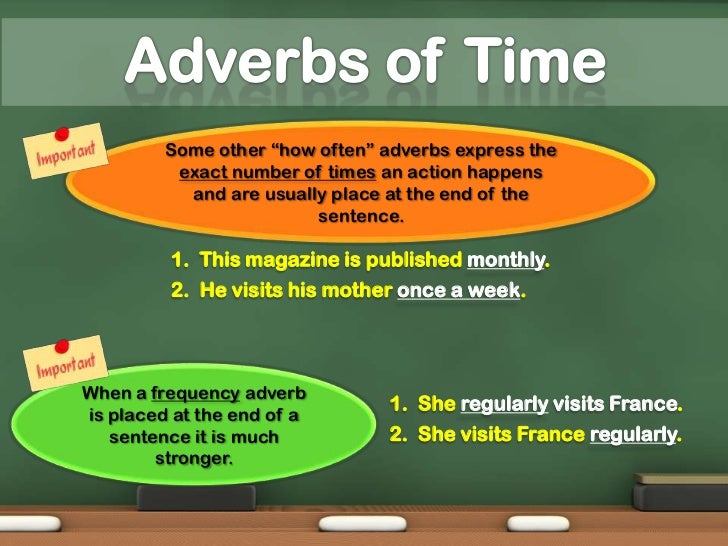
I will eventually visit you, Baby Bot!.
What are your daily tasks?
Lisa and Elliot are often swimming in the lake.
She usually travels by bus, but today she took the train.
Baby Bot occasionally watches TV series.
Adverbs and adjectives
These types of words share something in common: they are used to make descriptions and give a deeper meaning to a sentence. However, this word’s uses are not interchangeable. Adjectives are words used to modify or describe nouns and pronouns, for example, “I have a purple raincoat”, in this sentence “purple” is used as an adjective which describes the color of the raincoat, which is a noun.
Now, in the sentence “I normally wear my purple raincoat on weekends”, “purple” remains working as an adjective, while the word “normally” functions as an adverb that describes how often this person wears the purple raincoat, giving more meaning to the sentence.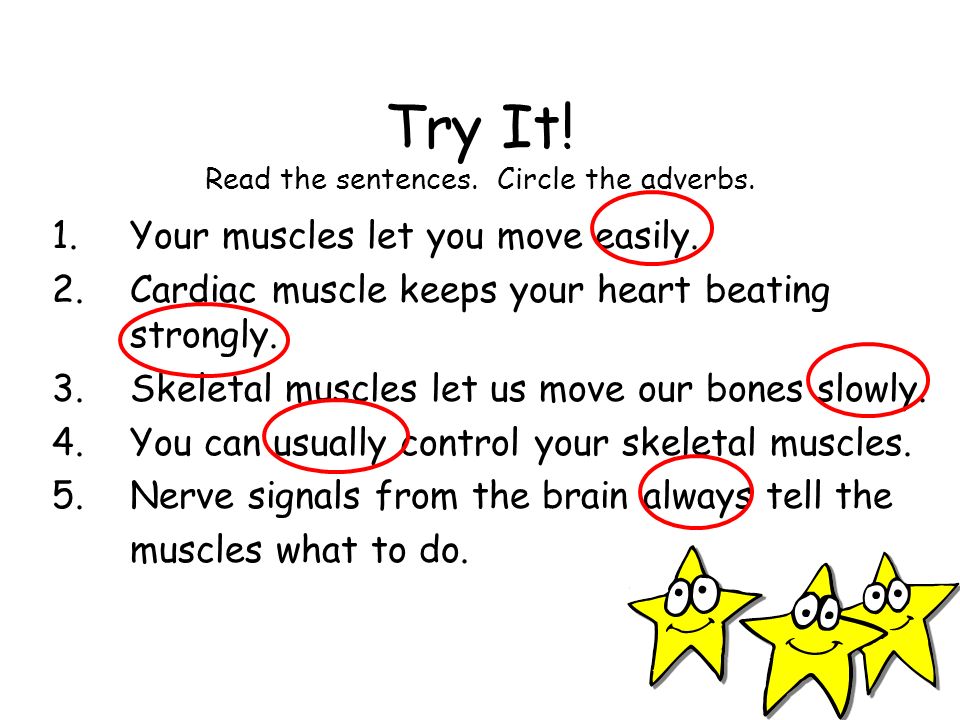
Playlearn with Lingokids!
Have your child learning while playing with the Lingocharacters in the Lingokids app! They will learn big stuff the fun way. Like for example daily routines:
Adverb - what is it in Russian, what does it mean, examples and rules
3.9
Average rating: 3.9
Total ratings received: 2649.
3.9
Average rating: 3.9
An adverb is an independent part of speech that does not change under any circumstances. There are several characteristic features of the adverb, each of which is described in detail in this article with examples. In addition, it describes the grammatical features of the adverb, its syntactic role in the sentence.
The material was prepared jointly with the teacher of the highest category Kuchmina Nadezhda Vladimirovna.
Experience as a teacher of Russian language and literature - 27 years.
The adverb is an independent invariable part of speech that denotes a sign and answers the questions: How? Where? Where? When? Where? Why? and others.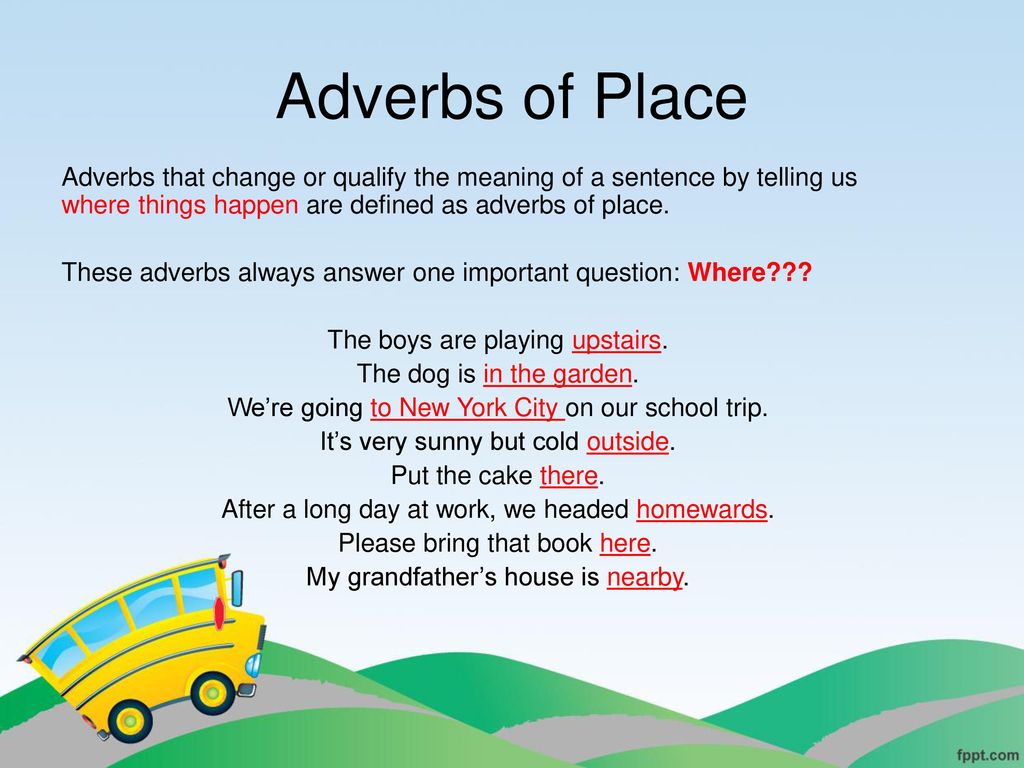
Depending on what part of speech the adverb belongs to, it can mean:
What do adverbs mean?
The general meaning of the adverb is a non-procedural sign (that is, a sign that does not change over time). Allocate circumstantial and attributive categories of adverbs by value.
Table Examples of adverbs by meaning
| Classes of adverbs | Adverb questions | Examples of adverbs | |
| Circumstantial | Time | When? How long? Since when? How long? | in the morning, recently, always |
| Seats | Where to? Where? Where? | house, right, top | |
| Targets | Why? For what purpose? For what? | on purpose, on purpose, out of spite | |
| Causes | Why? Why? | reluctantly, rashly, blindly | |
| Key | Quality | How? | fun, bold, fast |
| Methods and procedures | How? | anxiously, in a whisper, together | |
| Measures and degrees | How much? In what time? How much? To what extent? | little, three times too much | |
Grammatical features of the adverb
The adverb in Russian is not declined or conjugated (does not change by gender, number, case, like other independent parts of speech).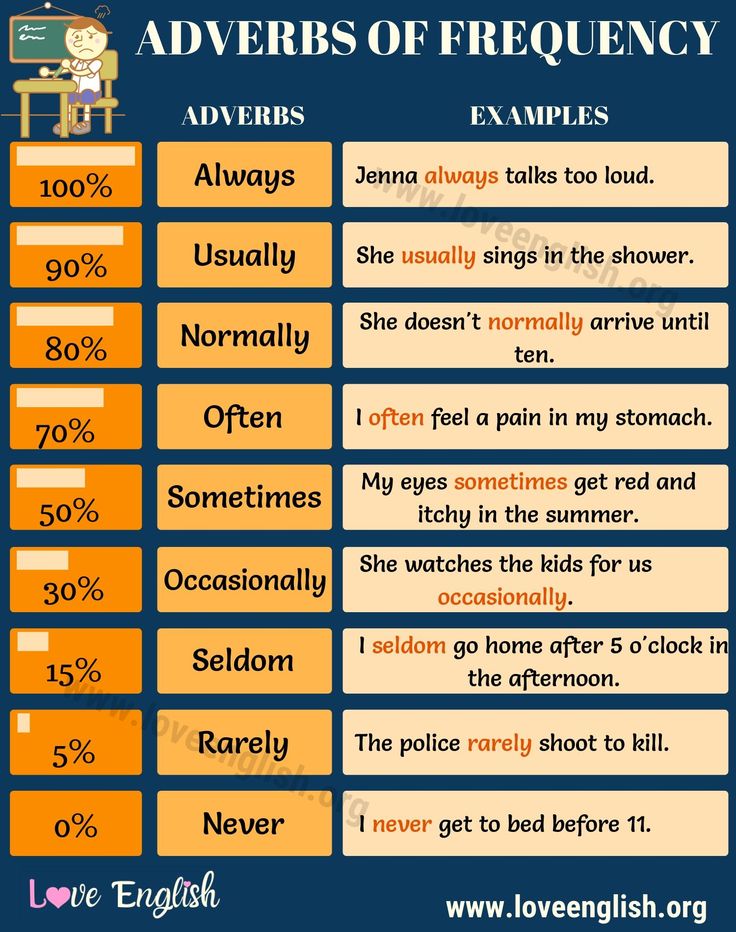 A constant morphological feature of adverbs is a category by meaning.
A constant morphological feature of adverbs is a category by meaning.
Adverbs formed from quality adjectives have comparative and superlative degrees of comparison: bad - worse - worst of all, loud - less loud - loudest of all, bold - more bold - boldest of all.
Syntactic role of the adverb
In a sentence, the adverb is usually used as a circumstance (The boy knows the topic well ) . Less commonly, it can act as an inconsistent definition (Mom cooked an egg soft-boiled . We arranged a running competition to race ) .
At school, the dialect is studied from the 7th grade. The proposed article complements the textbook, allows you to learn briefly about the main features of the adverb as a part of speech and quickly repeat the material before the test. We also recommend taking the online test.
Vitaliy Druzhinin
7/9
Kostya Kudrin
8/9
Zakhargov
7/9
9/9
Article score
3.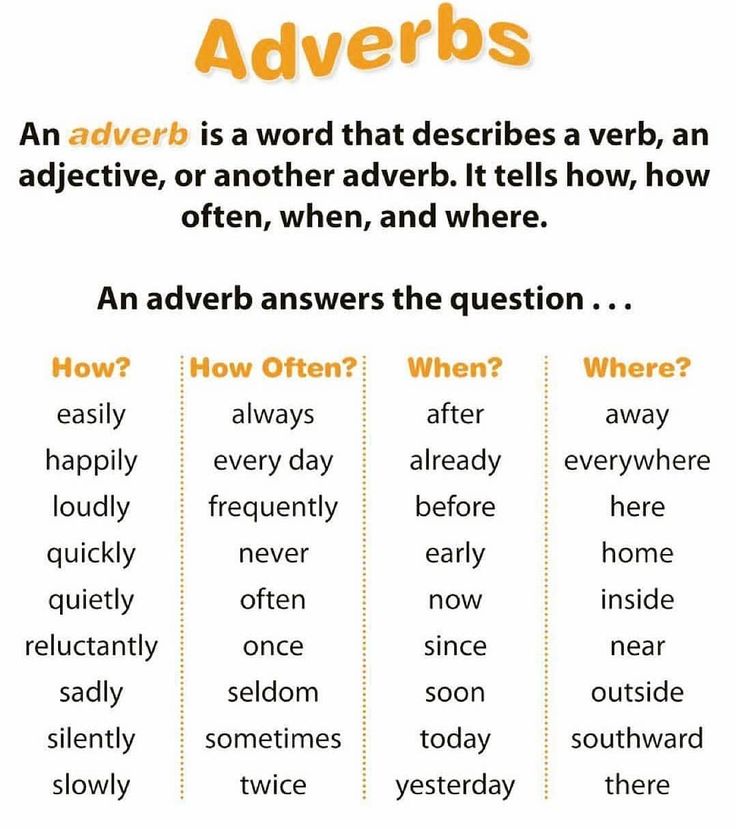 9
9
Average score: 3.9
Total ratings received: 2649.
What is your score?
Russian lesson on the topic "Adverb", 4th grade
Purpose:
- introduce students to the adverb as part of speech; learn to practice finding adverbs in text, learn to ask questions to adverbs and determine which part of the sentence they are are;
- develop thinking, form learning skills and skills.
Teacher: Children: Hands - in place, Legs - in place, Elbows - at the edge Back - straight!
So, the lesson of the Russian language.
- Today at the lesson we will get acquainted with a new part of speech for you, it was mentioned in the textbook Russian language in the 3rd grade. Let's learn to find this part of speech, ask questions about it and determine which part of the sentence it is.
- To approach a new topic, let's repeat passed.
I. Repetition of the past.
I will read you a poem, and you find known parts of speech, name them.
It was quiet, very quiet:
Quiet Hour of Shadows...
Only the alarm clock timidly ticked,
The mouse was scratching,
Pilikal cricket,
Goat mekal,
The cat was meowing,
The pig grunted defiantly.
V. Orlov.
- What parts of speech do you know?
(hour, alarm clock, mouse, cricket, goat, cat, piglet are nouns)
- What are the signs of nouns.
(there are masculine, feminine and neuter, change by case, there are I, II, III declensions)
- What other parts of speech are there?
(tikal, scratched, pilikal, mekal, meowed, grunted - these are verbs)
- Name the signs of verbs.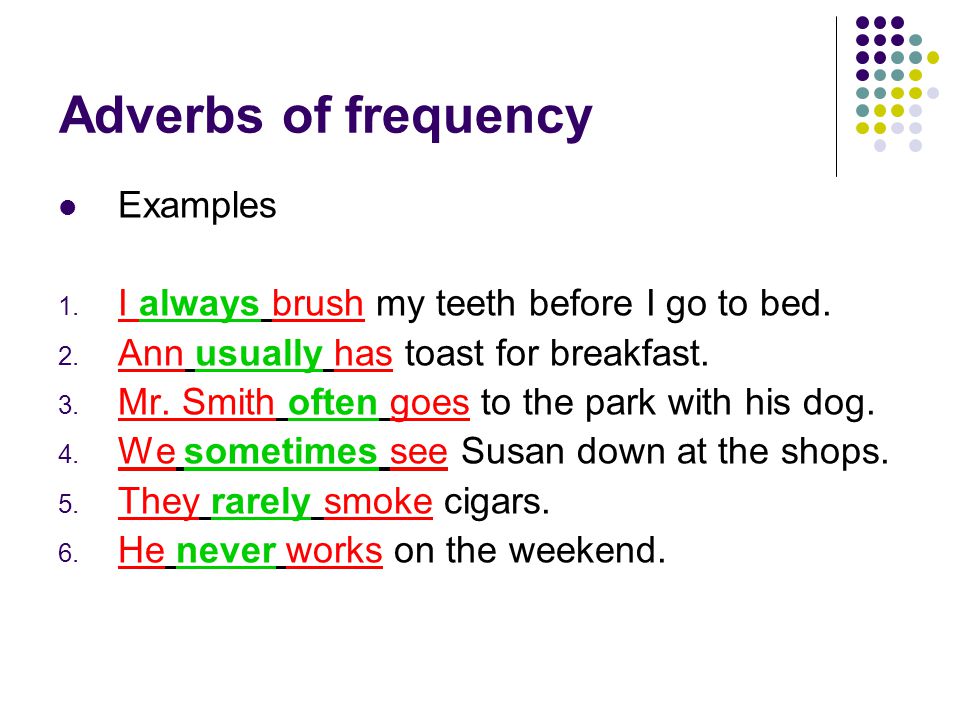
(change by person, there are 1 and 2 conjugations, have 3 moods)
- Is there an adjective?
(quiet - adjective)
- Name the signs of adjectives.
(change by gender, by case).
II. Acquaintance with the adverb .
- So we have determined the topic of the lesson:
Adverb ( I open the plate Adverb ).
- What is the peculiarity of words?
- What questions are answered?
(how?, where?, where?, where?, when?, why?, why?) ( open questions )
- Let's try to change the word by case.
I. p. is there anyone? what? quiet.
R. p. no one? what? quiet.
P. p. thinking about whom? about what? oh quiet.
- does it change by case? (No).
- - Let's try to change the word quietly on the faces.
I quietly
you quiet
He, it, it is quietly
We quiet
You quiet
They are quiet
- - are cheated on persons? (No).
See Appendix 1.
- No change --- no change the words.
(open plate - unchangeable part speech)
- What part of the word indicates mutability words?
( ending )
- What is the ending?
( a changeable part of a word that serves to word connections in a sentence )
- Which part of the word is used to form new words?
( prefix, suffix )
- What suffixes do you know?
( for nouns, adjectives, verbs )
- In adverbs it is quiet, dark suffix O.
There are also suffixes in adverbs.
( I open the tablet suffixes o, a, e, y)
- The suffix proves that the adverb - invariable part of speech.
Conclusion: the adverb has a suffix, but no ending!
III. Separation of adverbs.
- Read the sentences left and right columns
- What part of speech is associated with? From what word let's ask a question to the adverb?
( most often the adverb is associated with the verb, explains the verb and with other parts of speech .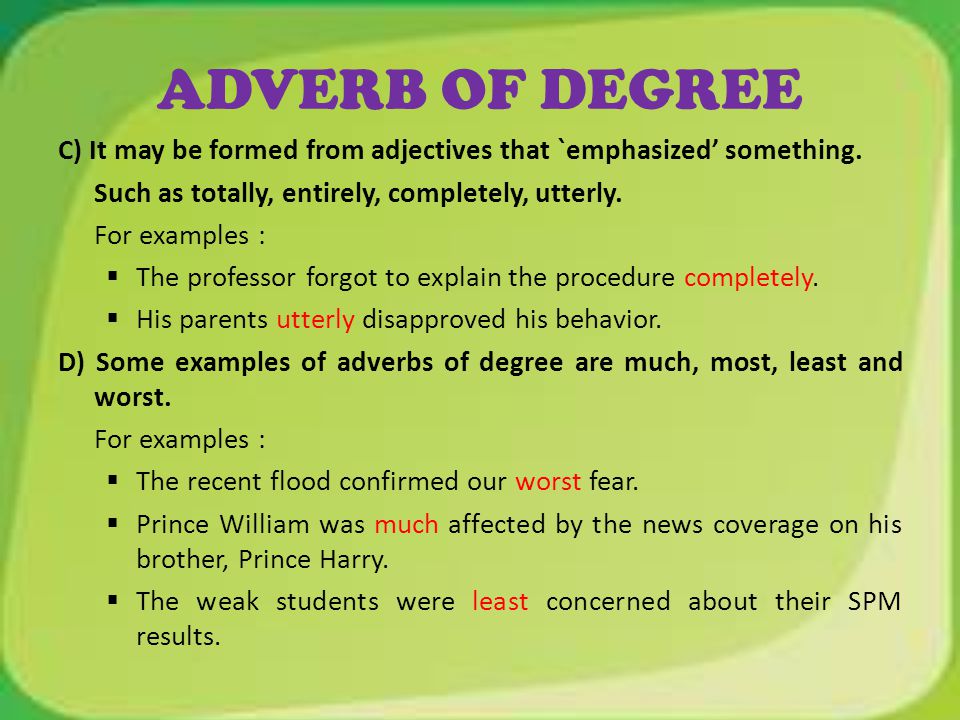 )
)
Write down the phrases in a column with questions
Stopped ( when ?) soon.
Was ( when ?) yesterday.
( I open the tablet, explains the verb )
- Thank you for writing .
- What part of speech did you get acquainted with?
- What are its features?
Adverb - invariable part of speech, which answers the questions where?, where?, when?, where?, how?, why?, why?, explains the verb and has suffixes a, o, y, y.
IV. Work but the textbook.
- Open textbook on page 36, read rule .
See Appendix 1.
V . Fizminutka.
Night forest.
The night forest was full of sounds:
Someone howled,
And who meowed,
Someone grunted. Someone stomped,
Someone flapped their wings,
Someone hooted and shouted,
And rotated his eyes,
But, and someone quietly - quietly,
He was silent in a thin voice.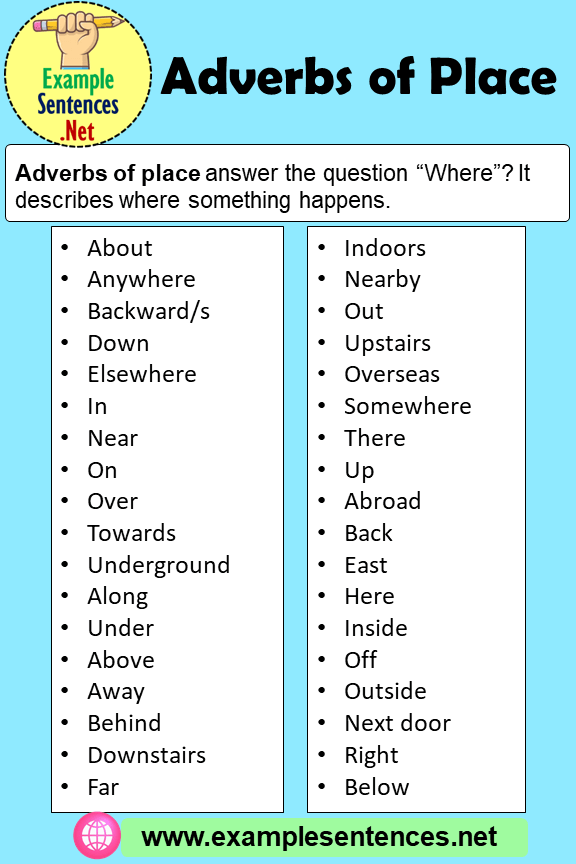
S. Wheat.
- Who heard the adverb?
(quiet - quiet)
VI. differentiated work.
- And now we will work with adverbs.
1 group.
Write phrases, put a question to adverbs.
1)
is playing ( how is ?) fun
returned ( when ?) late
2)
jumped ( where ?) down
came ( from where ?) from afar
See Appendix 2.
2 group.
Will work in notebooks, 1 student at the blackboard.
Sort sentences by members of the sentence, composition words.
- What the proposal says.
The whistle whistled a little, waved its wing and flew away.
- Find adverbs
Whistled ( how ?) a little the ending? ( no )
3rd group.
- Listen to the poem, find the adverbs.
But one morning ( when ?)
Kangaroo galloped
Shouted in a temper ( like ?)
Reluctantly ( like ?) and timidly.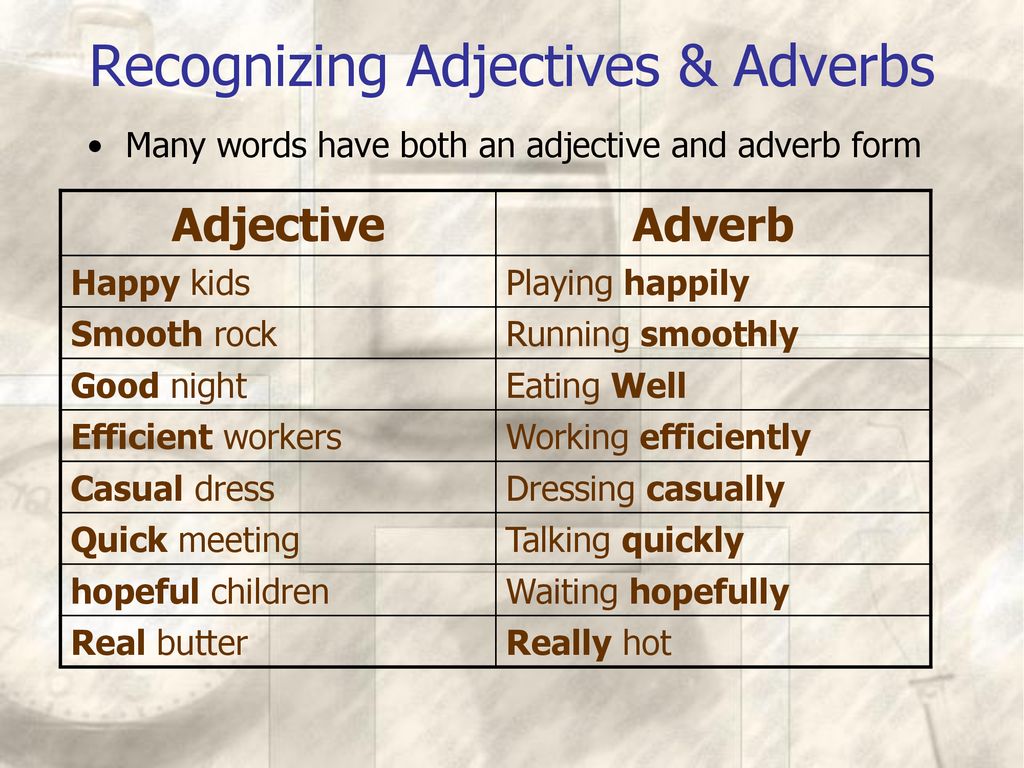 ( like ?)
( like ?)
K. Chukovsky
- Well done! You already know how to find adverbs ( write adverbs ).
How many adverbs have you heard? (5)
- And now let's check the work on the board.
A little
- Tell me, what parts does the adverb consist of?
Adverbs are without endings, zero they don't have an ending.
What are adverbs for?
( if we remove adverbs, speech will be inaccurate and inexpressive )
VII. Working with phraseological units.
- Now I will read you phraseological combinations, and you will write in one word - adverb.
Walk at a snail's pace - ( how? )
/slowly/
How is this word spelled?
Everything goes like clockwork - (how?)
/good/
Get up a little light —-
(mom needs it) /early/
At hand -
(to the store) /close/
The apple has nowhere to fall - -
(in class today) |Close|
VIII. Work according to the textbook.
Work according to the textbook.
- Find Control. No. 4, page 38.
- Read the task. - What hint is given?
- Who guessed what these days are.
- Having a hard time?
- Look at the number.
How can one name this number?
- When does this happen?
( today )
-February 18 - Friday this - today then Saturday will be when?
( tomorrow)
(yesterday)
(day before yesterday)
(the day after tomorrow)
- You have completed this task.
IX. diagnostic task.
1. — We perform 2 once a year diagnostic tasks, and today we will prepare for their implementation.
- Before you cards with tasks. Read carefully task.
- Mark X” only those adverbs where you need to write letter a. See Appendix 3.
2. Read the sentence.
Identify the part of speech artificial words in a sentence in a language Crox tribe.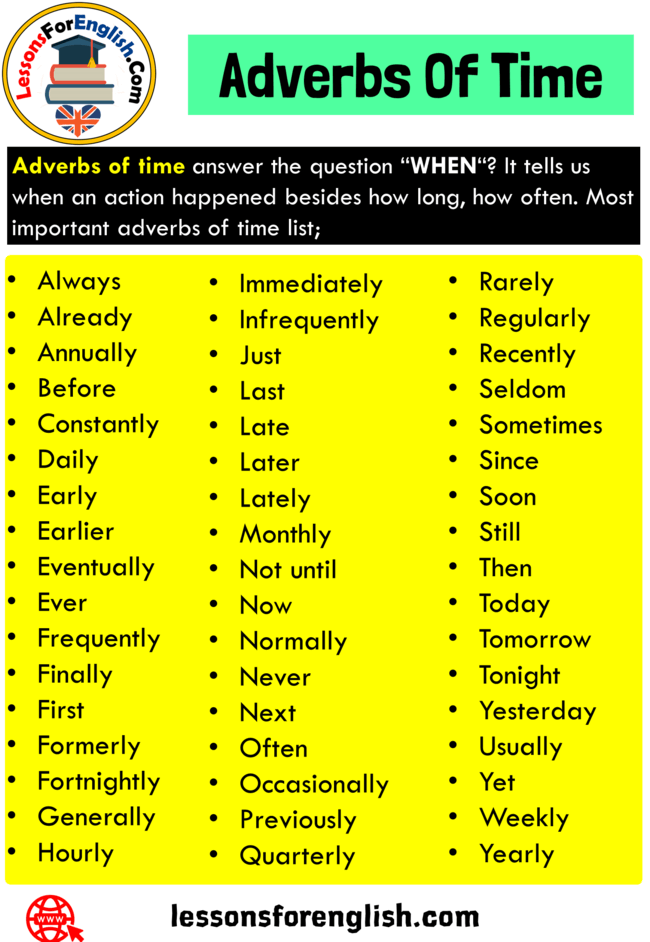
| Ex. | When? | Ex. | |
| Sapala | Kalusha | chvera | on the fur. |
Chvera - what part of speech?
Stop the letters so that the artificial word became a real vernacular. ( Yesterday )
X. Homework . Rule pp. 36-38. #2, page 37
XI. Summary of the lesson.
- Which task seemed the easiest to you?
- The most difficult?
- The most interesting?
XII. - How did you feel at the lesson?
- How was your lesson today tell me adverbs.
Children say:
- good
- heat
- cozy
- interesting
- fun
- great
XIII.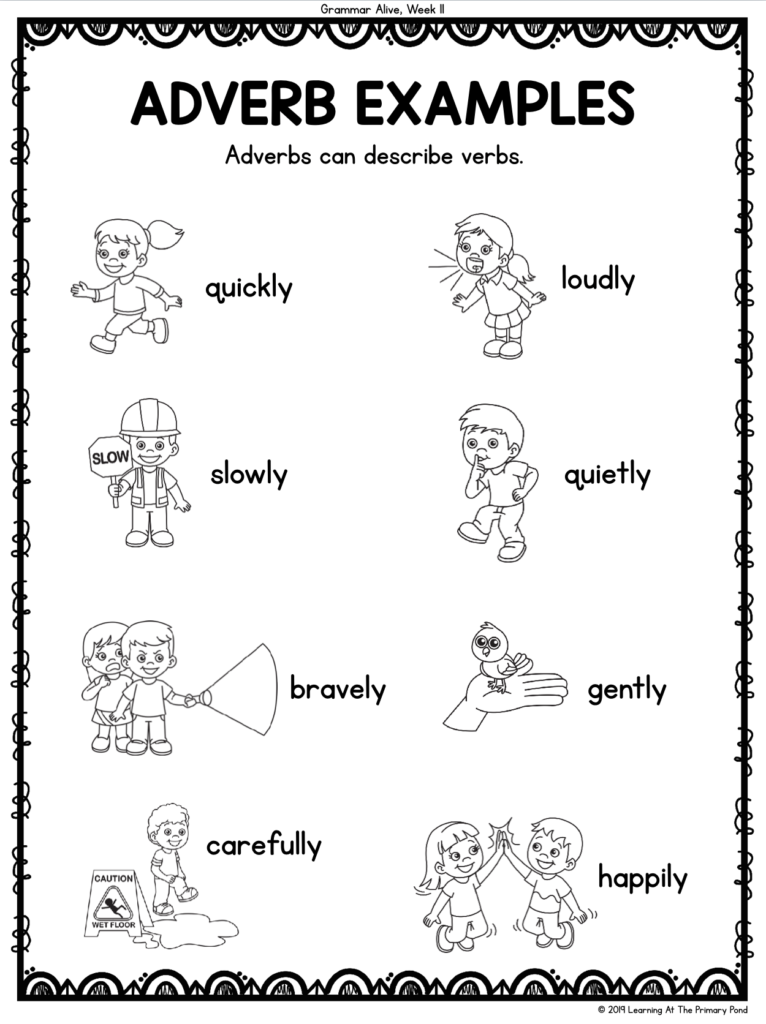 Lesson grade.
Lesson grade.
Rate yourself the way you think earned in class today.
Red —- “5”
Green —- “4”
Blue — - “3”
- You worked well, I had a lesson with you interesting.
1 student
Noun - school,
Wakes up - verb,
With an adjective - cheerful,
New school day has arrived!
2 student
We adverb excellent
We value the lessons,
We habitually observe
discipline and regime.
Teacher
After school known to be
You are riding in a sleigh.
And then, please, children,
Repeat parts of speech!
O. Vysotskaya.
References
- Conversations with a teacher //4th grade of a four-year-old elementary school / Edited by L.E. Zhurova. – M: “Ventana - Graf”, 2003.
